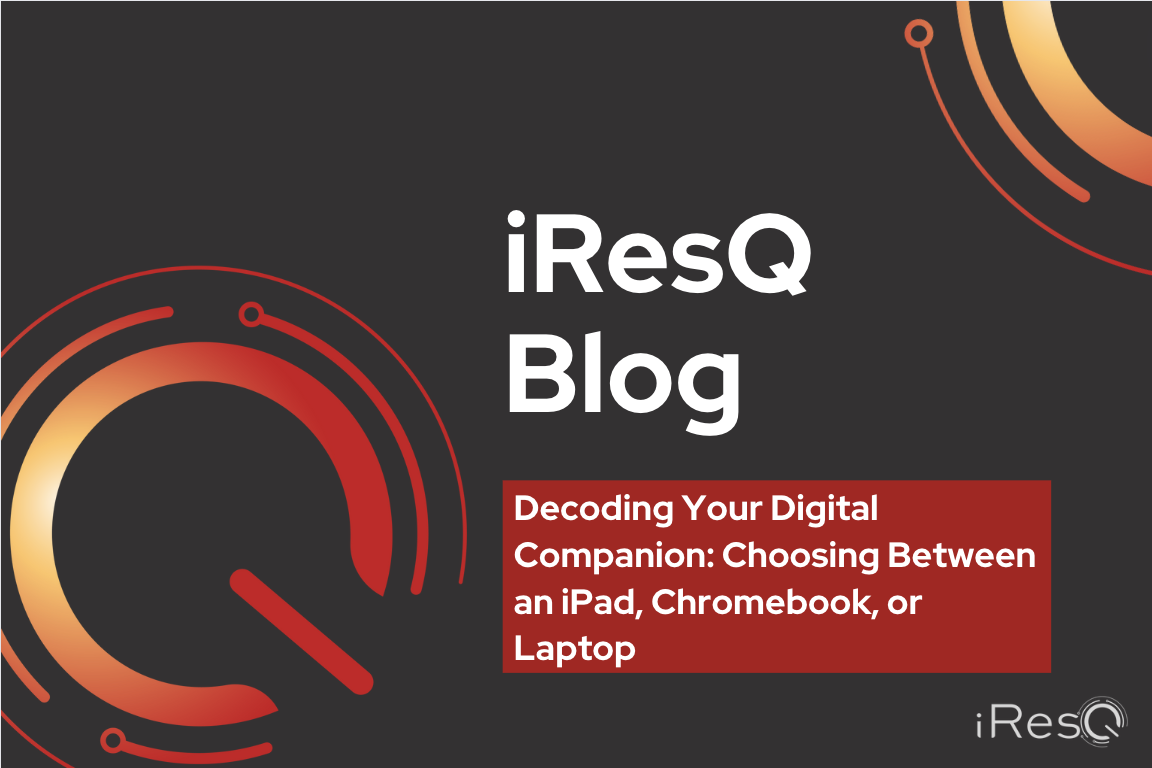In today’s fast-paced digital world, choosing the right device to meet your needs can be a daunting task. With a myriad of form factors on the market, it’s easy to feel overwhelmed when trying to decide between an iPad, Chromebook, or traditional laptop. From multitasking support to durability, each device comes with its own set of features, advantages, and drawbacks, making the decision-making process all the more challenging. No need to fret! We’ve decoded the main differences between these three popular options to help you make an informed decision.
iPad: The Versatile Tablet
The iPad, Apple’s iconic tablet, has revolutionized the way we interact with technology. With its sleek design, intuitive interface, and vast array of apps available in its built-in app store, the iPad offers versatility and portability like no other device. Whether you’re a student, artist, or professional on the go, the iPad has something to offer.
One of the key advantages of the iPad is its portability. With its lightweight design and long battery life, the iPad is perfect for those who are constantly on the move. Whether you’re looking for a small or a larger screen, the iPad offers many options, such as the iPad Mini, iPad Air, and iPad Pro. On any screen size, the touch screen interface and the iPad’s support for the Apple Pencil and bluetooth physical keyboards make it an excellent choice for digital artists and note-takers.
However, the iPad does have its limitations. While it excels at tasks like web browsing, email, and multimedia consumption, it may not be the best choice for heavy-duty productivity tasks such as video editing or software development. Additionally, its reliance on the iPhone operating system (iOS) means that it may not be compatible with certain software apps commonly used in professional settings.
Chromebook: The Budget-Friendly Option
Chromebooks have gained popularity in recent years as affordable alternatives to traditional laptops. Powered by Google’s Chrome OS, Chromebooks are designed for users who primarily rely on web-based apps and services. With their low price point and fast boot times, Chromebooks are an attractive option for students, casual users, and budget-conscious consumers.
One of the biggest advantages the Chromebook boasts lies in its simplicity. With Chrome OS, you can easily access your favorite apps and services from the Google Play Store or through web browsers like Chrome. Additionally, Chromebooks are known for their seamless integration with Google’s suite of productivity tools, including Google Docs, Sheets, and Slides – cutting out the need for a paid Microsoft Office subscription.
However, Chromebooks may not be the best choice for users who require access to specialized software or offline capabilities. While Chromebooks are capable of running Android apps, they may not offer the same level of performance or compatibility as traditional laptops. Additionally, their reliance on cloud-based storage may be a concern for users who require large amounts of local storage space (large internal SSDs or Hard drives).
Laptop: The All-Purpose Workhorse
Last but not least, we have the traditional laptop. Laptops have been a staple of the computing world for decades, offering power, performance, and versatility in a portable package. If you’re looking for a laptop that efficiently runs Windows 10 or Windows 11, options for brands and specs abound, from Lenovo, Dell, Acer, and other windows laptops. If MacOS is more your speed, there are many models of MacBook Airs and MacBook Pros to choose from. Whether you’re a business professional, creative professional, or gamer, there’s a laptop out there to suit your needs.
Laptops offer a wide range of features and customizable options, allowing you to choose the device that best fits your specific requirements. From Ultrabooks to gaming laptops, there’s a laptop for every budget and desired user experience. Additionally, laptops offer the flexibility to run a wide range of software applications, making them ideal for productivity, creativity, and entertainment.
However, laptops are not without their drawbacks. They tend to be bulkier and heavier than tablets and Chromebooks, making them less portable. Additionally, laptops typically have shorter battery life compared to tablets and Chromebooks, requiring frequent charging when used on the go.
Set Yourself Up for Success
Choosing between an iPad, Chromebook, or laptop ultimately depends on your specific needs, preferences, and budget. If you’re looking for a versatile device for everyday tasks and entertainment, the iPad may be the right choice for you. If you’re on a tight budget and primarily use web-based apps, a Chromebook could be the perfect fit. And if you need a powerful, all-purpose device for work or play, a traditional laptop may be the way to go.
Regardless of which device you choose, it’s important to carefully consider your requirements and do your research before making a decision. By weighing the pros and cons of each option, you can find the perfect digital companion to meet your needs and enhance your digital lifestyle.
Remember, no matter what device you choose, iResQ is here to help with any breakage or maintenance needs. Our team of skilled technicians is dedicated to keeping your devices in top condition, so you can stay connected and productive wherever life takes you.

